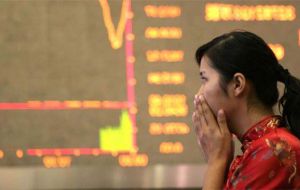MercoPress. South Atlantic News Agency
On tenth anniversary of crisis Asia pools financial reserves

Asian finance ministers have agreed plans to pool the region's vast financial reserves to protect their currencies from speculative attack. The agreement, reached at a meeting in Japan, comes almost 10 years after speculators triggered an economic crisis across the region in 1997.
The effects of the 1997 crisis were felt across the region and exposed the Asian economic miracle as having very shaky foundations. It also forced a suspension of the New York stock exchange and had serious consequences for Latinamerica. Under attack from the speculators, the so-called Asian Tigers like Thailand, Malaysia and Indonesia saw their currencies collapse. In South Korea, bad debt among large corporations fuelled a stock market crash. But for many, the worst effects were yet to come. Governments appealed to the International Monetary Fund for help. But the IMF imposed punitive conditions in return for stabilization packages. These often involved sharply reducing government spending, and raising interest rates, thereby forcing companies out of business. Unemployment and poverty rose, and governments fell. It is to prevent this kind of chaos that China, Japan, South Korea and members of the South East Asian grouping, Asean, have agreed the new plan to pool financial reserves in case they are needed. It builds on an earlier initiative, aimed at allowing Asian countries to tackle a crisis locally before having to ask for help from the IMF.




Top Comments
Disclaimer & comment rulesCommenting for this story is now closed.
If you have a Facebook account, become a fan and comment on our Facebook Page!